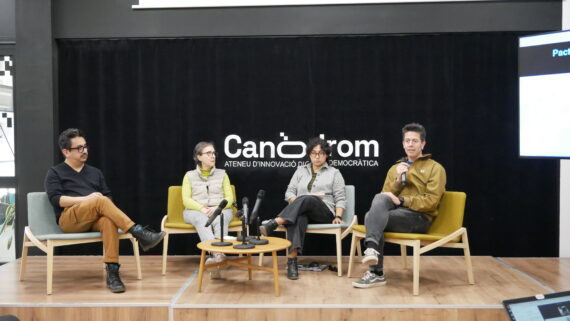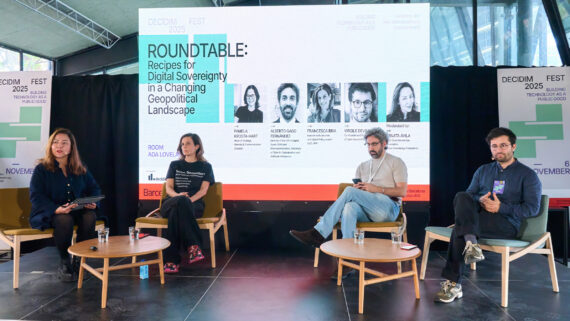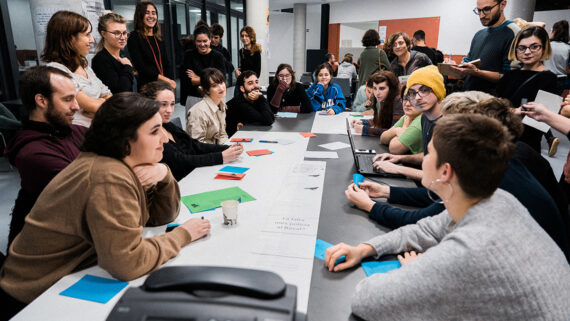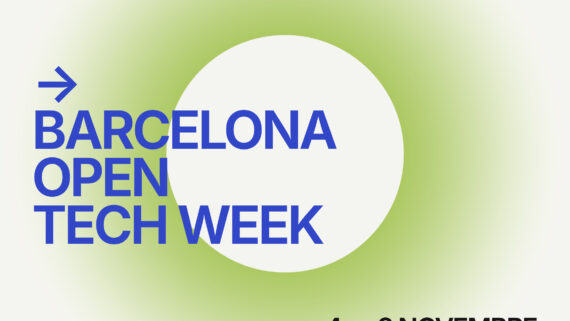The cycle "Growing Up Among Screens? Education, Technologies, and Democracy" concluded with a scientific congress featuring students from Institut l'Alzina of Barcelona. They presented their research work at the Canòdrom, showcasing the data collected and sharing their own conclusions on various topics related to the digital world and its social impact.
Research has led the students of the Institut l’Alzina to conduct a critical investigation into the opinions of young people and the advantages and disadvantages they find in using digital tools within their immediate environment, their own institute. This group of students chose various topics, such as social networks, video games, or artificial intelligence, and worked on them using the scientific method, starting with a question and ending with their own conclusions.
This work, the result of collaboration between Alzina and the Canòdrom, within the cycle “Growing Up Among Screens? Education, Technologies, and Democracy,” has allowed incorporating the voices of the protagonists of this cycle framed in the experience of education in a digital environment, starting from their questions, analysis, and conclusions on topics that may concern or interest them.
“The collaboration between the Alzina Institute and the Canòdrom has allowed us not to be adult-centric and to incorporate the voices of the protagonists so that they can explain to us their daily relationship with digital tools” said Mar Escarrabill, Technical Office of the Canòdrom.
A Young Perspective on the Digital World
During the various presentations of the students’ work, they also showed their more personal side by explaining, in many cases, their direct relationships with some of the topics they had analyzed, whether it was social networks, fake news, AI, or video games.
For example, one of the groups that worked on fake news gathered responses from more than 100 young people, of whom 72% could detect which news was false using tools and resources such as the news source, content, date, or data coherence. Regarding artificial intelligence, only 9% said they never use AI, and more than half use it for educational purposes.
“The research we did with the Canòdrom has greatly helped students in relation to how to use digital tools in their daily lives” said Clàudia Ureta, a teacher of the Creation and Services research project at Institut l’Alzina.
These presentations sparked some interesting first-hand reflections, such as the effects that social networks can have on adolescents, the impact of social networks and their emotional and psychological repercussions, video game addiction and the problems it can cause, or the extensive use of artificial intelligence and the changes it could bring to learning in schools.
In fact, one of the most valued points by the young people themselves is precisely the fact that they were able to propose the question, hypothesis, and carry out the entire investigation by themselves, which they then shared with all their classmates and the Canòdrom team.
Towards a Digital and Collective Awareness
This research project has not only provided students with a deeper understanding of the digital world we live in but has also highlighted their experiences and reflections. The collaboration with the Canòdrom has been essential in giving visibility to these concerns and has created a space for collective debate and learning that materialized in this last session of the cycle.
“Our conclusion is that it is not something that only happens to those in our group but happens to all young people” commented Estel·la Gregorio, a student at the Alzina Institute.
This group of students from the Alzina Institute has demonstrated that youth are prepared to tackle the challenges of the digital age with a critical and constructive perspective. Their work and reflections remind us of the importance of learning with a critical spirit that allows new generations to make responsible and conscious use of technologies, ensuring that they are a tool for the progress and well-being of society as a whole.
In this video you can see a brief summary of the day explained by the protagonists themselves.







